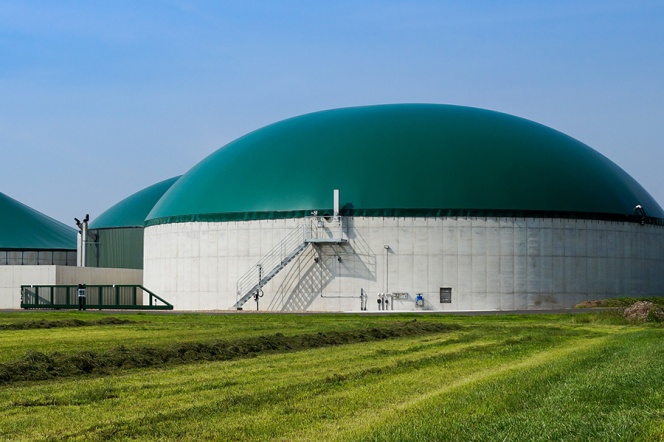Date added: 2022-11-24
More energy, less waste. Innovative biodegradable waste management solutions

Small wastewater treatment plants in Poland struggle with many challenges. One of the most difficult tasks is sludge management after the biological wastewater treatment. Another problem is the energy-consuming treatment processes, which determines the profitability of the entire operation, taking into account the currently increasing energy prices. Therefore, waste energy and raw materials management within a treatment plant are of key importance.
An interdisciplinary team of researchers engaged in construction and testing of a system demonstrator which will improve energy efficiency of small wastewater treatment plants and agricultural biogas plants. Among others, the system will enable:
- more efficient biogas production from activated sludge (previously subjected to a low-temperature disintegration process), also co-fermented with local biodegradable waste;
- waste/process heat recovery and management using heat pump technology;
- recovery of agricultural water from digestate for irrigation of fields, and use of the digestate as a nutrient-rich liquid fertilizer (nitrogen and phosphorus), after its pretreatment.
– Thanks to our idea, it will be possible to increase the efficiency of biogas production, recover process heat more efficiently, and at the same time reduce the amount of excess sludge that requires management. These will be tangible benefits for the treatment plant. – explains Prof. Jan Wajs, from the Institute of Energy at the Faculty of Mechanical Engineering and Ship Technology, the project manager.
Functional, efficient and eco-friendly
The system demonstrator, which will be built in a treatment plant, consists of three subsystems. The first is a prototype, low-temperature disintegration system and a fermentation chamber, with focus on improving the functionality of these processes, especially in terms of increased biogas production and recovery of agricultural products.
Disintegration is a process that causes fragmentation/destruction of the activated sludge structure or other biodegradable substrate that requires energy input. The organic components released into the solution become nutrient substrate for bacteria in the process of anaerobic fermentation. The benefits of this process primarily include increased production of biogas in the fermentation process, reduction of dry organic matter concentration in the fermented sludge, reduction of the amount of generated sludge.
– The digestate, produced in the fermentation process, is rich in nutrients and can be used as a fertilizer, explains Prof. Sylwia Fudala-Książek. - It can be an alternative to much more expensive mineral fertilizers, however the digestate and water (leachate) from the separation process must be properly prepared, so that they are safe for the environment before their final management. One of the tested elements of the system is to ensure this in the future.
The second important subsystem includes an innovative heating and cooling installation, dedicated to disintegration of activated sludge and fermentation, together with a waste/process heat recovery system, for improvement of the energy efficiency of these processes. The developed solution will reduce the power demand of the treatment plant.
The waste water recovery system (mainly obtained from drained digestate), using electrochemical advanced oxidation process for disinfection and removal of micropollutants, is the third subsystem of the demonstrator. Water separated from the digestate by centrifugation method will be subjected to boron-doped diamond (BDD) electro-oxidation.
– This technology is environmentally friendly and does not require reagent dosing. The recovered water will be microbiologically safe and free of micropollutants, it will be rich in nutrients and will be safe for agricultural purposes, primarily for irrigation, as well as supplementing or replacing mineral fertilizers – emphasizes Prof. Fudala-Książek.
– Today, we are all looking for solutions that provide energy from waste sources or RES, to improve the energy efficiency of enterprises. Through technologies that recover energy and water with agricultural fertilizers while processing sewage sludge or coferments, we will not only obtain measurable benefits in the system with disintegration and fermentation processes. Simultaneously, we work for the benefit of circular economy (CE) and sustainable development of small sewage treatment plants and biogas plants – says Prof. Jan Wajs. – Additionally, our project is consistent with the energy strategies of the European Union.
The project is scheduled for two years. Design works are close to an end, and the following stage involves construction of the technology demonstrator in a selected wastewater treatment plant. Researchers from the Faculty of Mechanical Engineering and Shipbuilding, the Faculty of Civil and Environmental Engineering and the Faculty of Electronics, Telecommunications and Informatics participate in the project under the supervision of prof. Jan Wajs.

